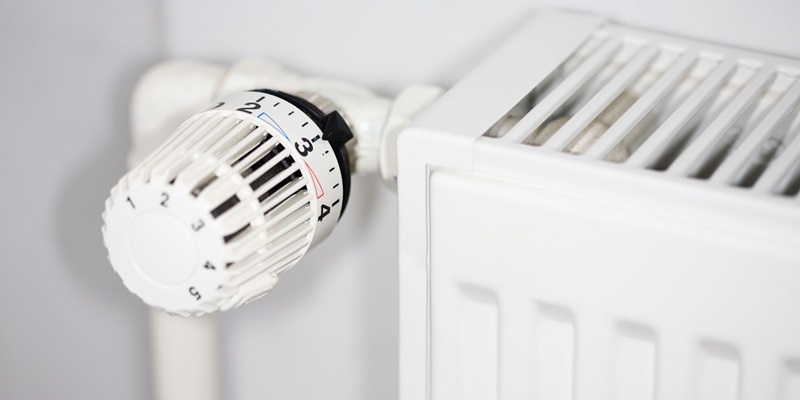When Should I Turn My Central Heating On?

It’s a question that many people ask themselves, especially when the weather starts to get chilly. Knowing when to turn on your central heating can be a tough decision, as it depends on a variety of factors, such as the outside temperature, your personal comfort preferences, and any potential cost considerations.
Factors to Consider
Outside Temperature
The most obvious factor to consider when deciding whether to turn on your central heating is the outside temperature. If it’s getting cold enough that you feel uncomfortable without any heat, then it’s probably time to turn on your central heating. However, keep in mind that the temperature can vary greatly depending on where you live and what type of insulation your home has.
Personal Comfort Preferences
Everyone has a different tolerance for cold temperatures, so it’s important to take your personal comfort preferences into account. Some people may feel comfortable with just a sweater and a warm drink, while others may need the central heating on as soon as the temperature drops below 70 degrees Fahrenheit. It’s important to find a balance between staying warm and not overspending on heating costs.
Cost Considerations
Speaking of heating costs, that’s another important factor to consider. Turning on your central heating can significantly increase your energy bill, especially if you live in an area with harsh winters. If cost is a concern for you, it may be worth investing in alternative heating options such as a space heater or using a fireplace.
Signs That It’s Time to Turn On Your Central Heating
Aside from considering external factors, there are also some telltale signs that it’s time to turn on your central heating. These include:
- Feeling cold even when bundled up with warm clothing
- Seeing your breath indoors
- Waking up feeling particularly chilly in the morning
If you experience any of these signs, it’s probably time to turn on your central heating for added warmth and comfort.
Tips for Efficient Heating
To ensure that your central heating is running as efficiently as possible, here are some tips to keep in mind:
- Keep all windows and doors closed when the heating is on to prevent warm air from escaping.
- Use a programmable thermostat to regulate the temperature and avoid overheating your home.
- Have your central heating system regularly serviced to ensure it’s in good working condition.
- Consider upgrading to a more energy-efficient central heating system if yours is outdated.
Smart Thermostats
Smart thermostats are a great way to manage your heating more efficiently. These devices allow you to program your heating schedule in advance, which means you can set your heating to come on just before you wake up or get home from work, ensuring your home is warm when you need it to be.
Furthermore, smart thermostats can be controlled remotely from your smartphone or tablet, giving you the flexibility to adjust your heating settings from anywhere. This can be particularly useful if you’re away from home and want to prevent your pipes from freezing.
Most smart thermostats also have energy-saving features, such as learning your schedule and preferences to heat your home more efficiently and providing energy usage data to help you understand and control your heating costs.
By using a smart thermostat, you can not only improve your comfort but also save money on your energy bills. It’s a win-win solution for managing your central heating.
Getting Your Central Heating Ready For Winter
Before the first frost hits, it’s crucial to ensure your central heating system is ready for the winter. An efficient, well-maintained heating system not only keeps your home comfortably warm but also helps in reducing energy consumption and costs. Here are a few steps you can take to prepare your central heating for the cold months:
- Bleed Your Radiators: Trapped air in your radiators can hinder the efficient circulation of heat. By bleeding your radiators, you release this air, allowing hot water to fill every part of your radiator, which ensures maximum heat output.
- Check Your Boiler: Ensure your boiler is in good working order. If it’s been a while since its last service, it may be a good idea to have it checked by a gas-safe registered engineer. They can identify potential issues and fix them before they become serious problems.
- Insulate Your Home: A well-insulated home not only stays warmer but also helps to reduce the load on your central heating system. Check the insulation in your attic, walls, and windows before winter arrives.
- Set Your Thermostat: Try to maintain a constant temperature in your home. Sudden temperature changes can make your system work harder. Keeping your thermostat at a constant level can also help avoid unnecessary consumption of energy.
- Emergency Contact: It’s always advisable to have the contact details of a reliable heating engineer at hand. In case your heating system breaks down during the coldest months, you’ll be prepared to get it repaired quickly.
Remember, a little preparatory work can go a long way in ensuring a warm and cosy winter.
Conclusion
In conclusion, the decision of when to turn on your central heating ultimately depends on a variety of factors and personal preferences. It’s important to find a balance between staying warm and not overspending on heating costs. By considering outside temperature, personal comfort preferences, and cost considerations, as well as keeping an eye out for signs that it’s time to turn on the heat, you can make the best decision for your home and your wallet. So go ahead and turn on that central heating – just remember to be mindful of energy usage and stay warm this winter season!